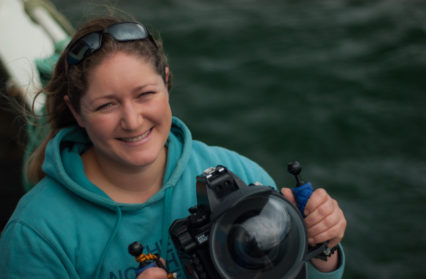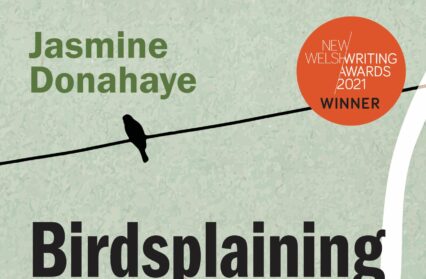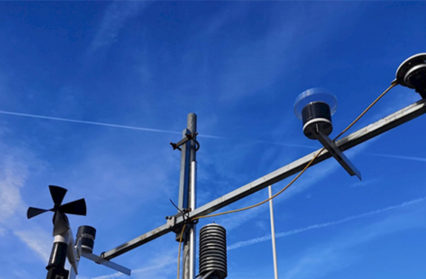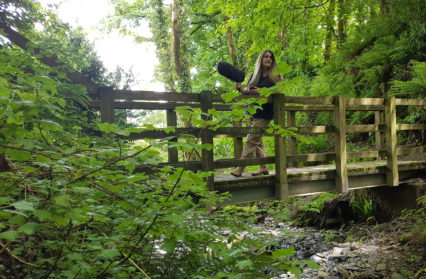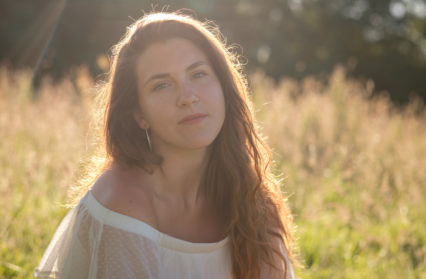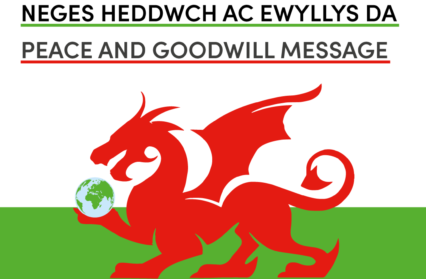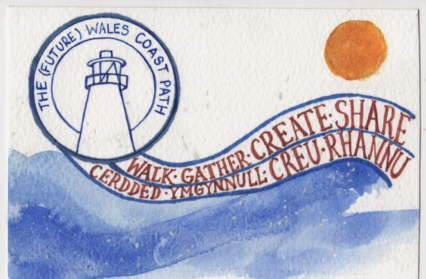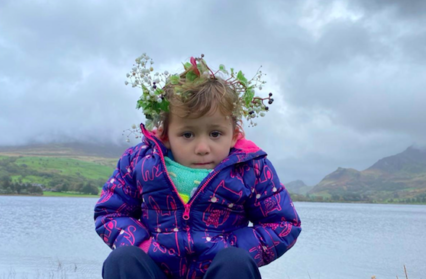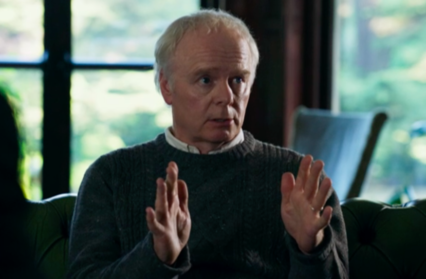On the back of her recognition in BBC Radio 4 Woman’s Hour Power List 2020, Christine Grosart talks to Holly McElroy about diving and her work with Ghost Fishing UK.
Christine Grosart is no stranger to hard work. Not only did she achieve a women’s solo cave diving depth record in 2009, but she is also an offshore diver medic on North Sea vessels and in 2020 she was awarded with a Fellowship of the Royal Geographical Society. Alongside this, Christine is secretary of Ghost Fishing UK, a charity that works to remove abandoned, lost and discarded fishing gear – otherwise known as ‘ghost gear- from our seas. With sixteen years of diving experience and a passion for ocean conservation, Christine has been a pivotal member of the organisation and on the scene at many of their successful missions.
Holly McElroy: From working as a jockey, to a diver to a paramedic, what led you to such a diverse career trajectory?
Christine Grosart: I was basically a pony mad child and if anyone has one of those, you’ll know what I mean. My dream was to be a jump jockey, so it all had to start at a young age; I was riding on racehorses at the age of 14.
My mum was a scuba diver, and my uncle was a caver, so on rare days off I’d drive to the caving club in Somerset to catch up with my family and hang out with cave divers, so that’s really how I got into diving.
After a season riding in steeplechases, I figured I was not going to win the Grand National any time soon, and I was getting heavily into my caving and started scuba diving bit by bit, mostly with borrowed equipment from my cave diving friends. I’d had a few goes in the pool with my Mum as a child but horses always took precedence, so I didn’t really take it up seriously until I started cave diving when I was twenty-four.
I needed more money and time off than horse racing permitted in order to follow my goal of cave diving. So, I quit racing and joined the ambulance service, first as a technician then going on to do my Paramedic degree. After 13 years in the NHS, I’d hit the top of my pay band, had nowhere to progress and the daily grind was getting to me. I got a loan from the bank, embarked on a year of training and now I work offshore on saturation diving vessels and oil rigs as an offshore medic. It affords me the time I need to engage in all my other hobbies, but most importantly, run the charity Ghost Fishing UK. And I get to go to work on a helicopter, which is very cool!
How do you think your experiences of being outdoors and with nature from a young age have inspired your concern for the environment as an adult?
I think being outside with horses and having family with a love of the ocean and geology definitely influences the way I see the world now. I hate cities and the thought of having to navigate London on the tube terrifies me! The overcrowding, concrete everywhere, dirty air and noise all makes me cower and I just long for being in wide open spaces as soon as possible.
I hate litter and I hate the way humans use the Earth as a trash can. You might think I’m a total hypocrite working in the oil and gas industry. I justify it as, I’m a medic so I don’t actually have anything to do with the fossil fuels process directly. The job gives me the time and money to pursue my charity work in a meaningful way.
In fact, I have learned a lot about the industry – enough to have a balanced, untainted and unbiased view. I’ve worked on wind farm jobs, ROV inspection jobs trying to sort out oil and gas leaks and on our diving vessels we are quite often tasked with maintenance and repair to prevent loss of containment of harmful substances.
Being a diver puts me in a very privileged position to see wildlife up close in its natural habitat and also, the damage we are doing to our oceans is right there for us to see. I feel I have an obligation to take my camera underwater to show the rest of the population who do not dive, what is going on down there.
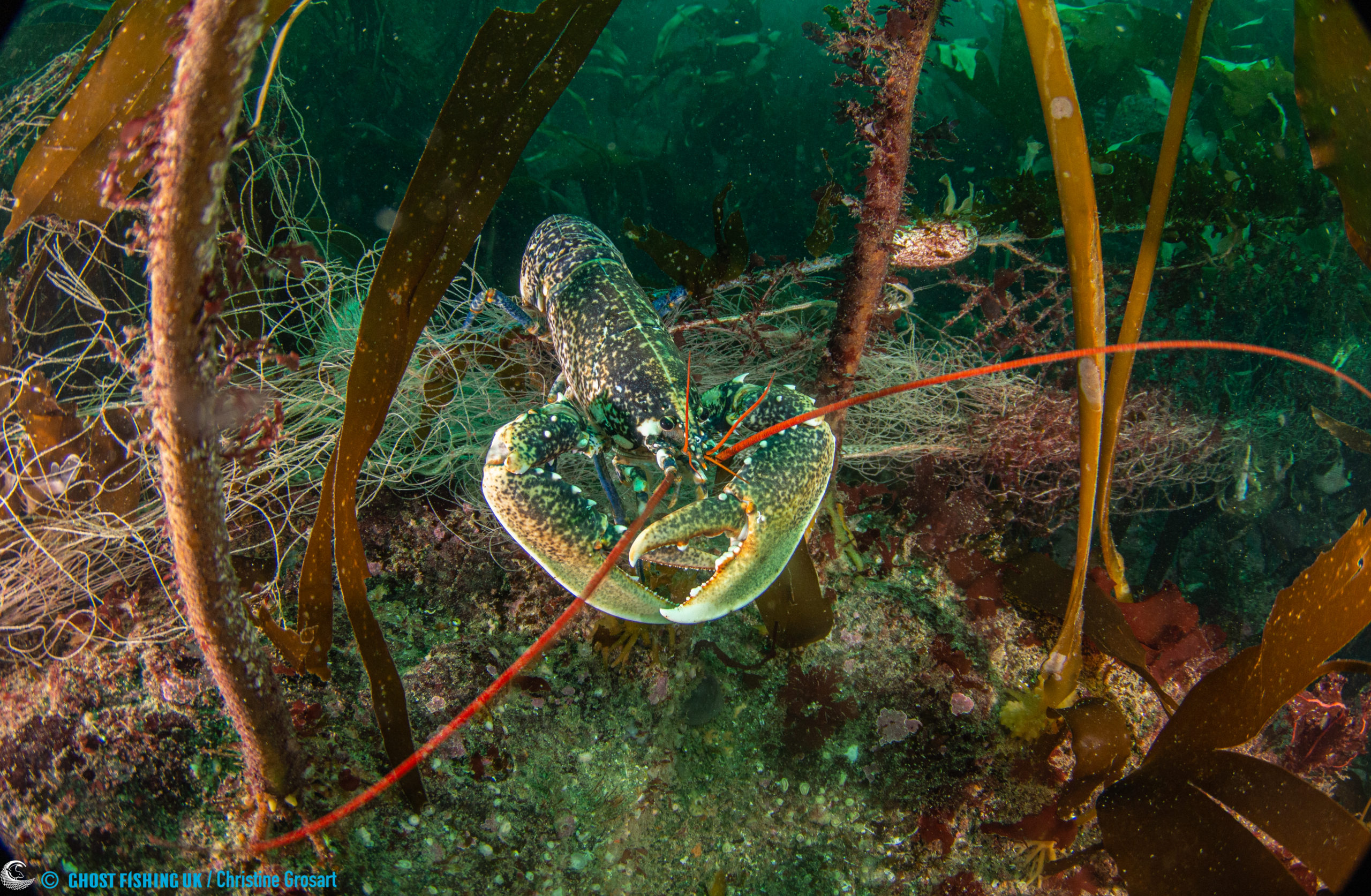
How did you make the move from diving for pleasure to volunteering for Ghost Fishing UK?
Although I’m not a professional diver – and I’d like to keep it that way – I have always felt the need to dive for a purpose. Whether that’s photography, cave exploration, surveying, project work, or conservation work, I’m not happy just swimming about looking at fishes.
When we heard about Ghost Fishing, this was a golden opportunity for me – it was the purpose I had been looking for all this time. It combined everything I loved from cleaning up the seas of harmful, lost fishing gear, to using my passion for videography, photography and film making to bring the ghost net problem to the public.
I’m a trustee of the charity, a secretary, instructor, events manager and I do a lot of fundraising. Around 2017 I wrote a training course for amateur divers doing this sort of work and last year we were oversubscribed, with 120 divers signed up.
What has been your proudest achievement so far in your work with Ghost Fishing UK?
Every time we find a net with trapped marine life, some of it still alive, you get this feeling of butterflies in your stomach and the excitement within the team is electric. We know we have the skills, discipline and training to pull it off and our successes are evidence of this – they have all run like clockwork.
Each time we release an animal that has suffered unnecessarily in a lost net that simply won’t stop catching wildlife, we get an amazing feeling.
For me, personally, being interviewed on The One Show was just the best experience. The whole team had dinner the evening before with the director, Mark Bates and the presenter Lucy Siegle. The following day they came out on the boats with us and had drones up filming and once the nets came up to the surface, the whole One Show crew rolled their sleeves up and helped pull the net in.
Last year, my partner and I were thrilled to be invited to join the Royal Geographical Society as Fellows and this was a huge honour. It was about the only good thing that happened in 2020, to be honest.
The work that Ghost Fishing UK does is amazing and very necessary, but do you think there is more that can be done preventatively, maybe even legislatively, to stop fishing gear ending up abandoned in the sea in the first place?
I don’t think the government or any of the marine management organisations were ready for a whole bunch of divers to start pulling lost fishing gear out of the sea.
Initially we were charged for the privilege and we still need licenses to do this work, though now we come under a fee exemption. Wales still has a long way to go in this regard.
For their whole lives, the nets had been out of sight out of mind. And here we were, providing evidence of not only their existence, but the harm they were doing. Even if they aren’t actively catching fish, crustaceans or drowning cetaceans, they break down gradually into smaller and smaller plastic pieces – microplastics – and are ingested by marine animals, ultimately ending up in our food chain.
There are many, many organisations, NGOs, ‘collaborations’, working groups, you name it – but none of them have come up with any solutions and we cannot find any evidence that any are trying. Basically, there is a lot of talk but no action.
A vital point to make here is that fisheries in the UK, in general, do not lose their fishing gear on purpose. It is expensive and inconvenient to lose nets and pots. Saying you want to stop fishermen doing something they are already trying hard not to do, is pointless.
We have to accept that fishing is an important, even pivotal industry in the UK and will continue no matter what. What I would like to see is the fishing industry engaging with us and telling us where and when they lose their nets. They can do this without penalty and if it is within our depth range we can retrieve them.
We found a 200-metre-long lost gill net strung out across Hand Deeps reef off the Cornish coast in August 2020. We estimated that it had been there about a month. It was reported to us by divers as the reef is a popular scuba diving site and is designated a Special Area of Conservation. It was not reported to anyone by the vessel that lost it.
Ghost Fishing UK is emphatically not anti-fishing. Many of us eat fish and want to support a sustainable industry in the UK. We are quite often recovering ‘vintage’ nets which are a legacy of older fishing practices and many years of accidental losses. But we are also finding new nets, new reports on regularly dived sites and in some cases, suspicions that they are coming from the same vessel.
There are fishing vessels who make a bad name for the majority of the industry and it seems that they are going under the radar and nothing is being done. Often nets are lost due to fishing over or too close to snag hazards, such as wrecks and rock outcrops.
I don’t think slapping fishing vessels with threats of fines or other legislation will help long term. They are already obliged to report gear and may be fined if they do not recover it. It is no surprise then that if they lose nets or pots, they simply keep quiet. On the flip side, we have been contacted by smaller fishing vessels who have lost strings of pots and could not recover them.
We went out with a small team and freed the pots and returned them to the fisherman. We do not want to be under the Health and Safety Executive (HSE) and all the headaches that entails, so we are not ‘at work’ and therefore cannot take payment. As far as we are concerned, everyone’s a winner.
You won’t be able to prevent fishing vessels from losing their gear, but we need to find a better way of encouraging them to report it without fear of reprisals or we will never find out where it is.
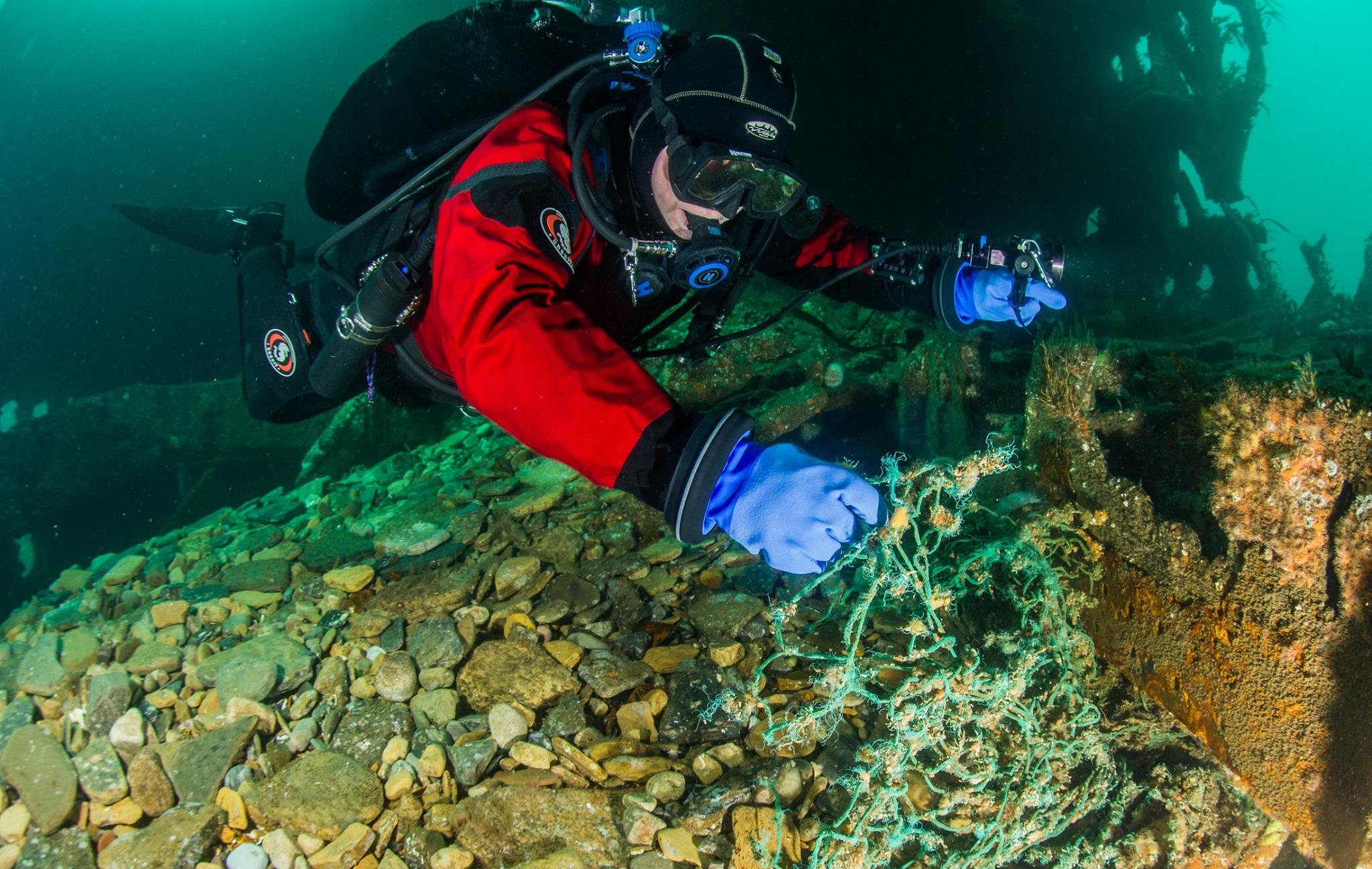
On a personal level, you try to live as plastic free as possible, what would be your best advice to others trying to achieve this?
I have quite a pragmatic approach to things. I’ve lived and worked on farms; I’m now involved in an ocean clean up charity – so I have a broad spectrum of experiences and lifestyles to draw from.
I eat meat and fish, though I’m picky about where it has come from, how it has been butchered and caught and always try to shop local when I’m at home. It disappoints me when I try to source MSC certified fish, caught in the UK, from supermarkets without it being wrapped in plastic. I quite often come away empty handed.
We have a beautiful variety of fresh fish and shellfish around the UK and we just don’t eat it. We sell it abroad!! It’s crazy. The British public are far too set in their ways when it comes to fish. They need to broaden their horizons! There is more fish out there than just cod and haddock…
I live as plastic free as possible. I even have a plastic free blog, following the switches I have made and with lots of helpful, achievable tips. We don’t all have the time on our hands to make our own soap and I definitely cannot cycle to work!
Single use plastic is a no-no in our household, and I’ve banned pointless things like shop-bought Christmas crackers full of useless plastic tatt.
Ironically, the worst offender for single use plastic is the medical industry. Funnily, nobody seems to complain about having a spanking new plastic syringe or oxygen mask fresh out of a plastic sealed bag which came in an over-packaged, bubble wrap filled delivery box. It seems when it comes to our health, the planet gets put on the back burner. You only have to see the recent scourge of surgical masks cropping up on our beaches to see that.
You have spoken before about being female in the largely male dominated world of cave diving , and that you think it is not necessarily discrimination but that the sport is largely unappealing to a lot of women. Do you think this has changed in recent years and are you seeing more women entering the diving industry?
I cringe when I see how the diving industry is trying to attract women into the sport. A friend of mine who runs a small diving related business calls it ‘shrink and pink’. If you are going to make a diving product for a woman, make it smaller and make it pink – job done.
Honestly, I just facepalm. Then there is the girlie scuba ‘love-in’ where they just talk about menstruation and anxiety…and that’s pretty much it. Technical and cave diving and the type of diving I do, which is mainly project orientated, is rarely comfortable. It involves dry suits, lots of cylinders, cold, murky water, much of it is self-starting and I’m very driven for results.
I’m still not seeing much of that in the diving industry. Project diving is dwindling across both sexes and scuba diving has really just become a gear collection competition. My partner, who works in the industry, said quite poignantly: “I started diving because I wanted to see what was in the sea – not collect thousands of pounds worth of diving kit!”
The diving club aspect in the UK still has a long way to go and it is still very much run by ‘men of a certain age’ who like to stamp their authority on younger women coming into the sport. That can be off-putting to women and even stopped me joining a club once. There was one old guy mansplaining to me something I knew was utter nonsense. Then I watched him in the water and realised, this was not the club for me.
I think women know that diving is open to them and there is no shortage of female instructors if that’s what they feel they need. But they are not really going anywhere with it and when I see a good, driven, capable female diver I do everything I can to keep them in the water and keep on diving, no matter what life throws at them. I’m not interested in seeing cutesy photos of girls in bikinis on Instagram pouting ‘save the turtles’. We need divers to roll their sleeves up, get stuck in and actually make a difference instead of just talking about it.
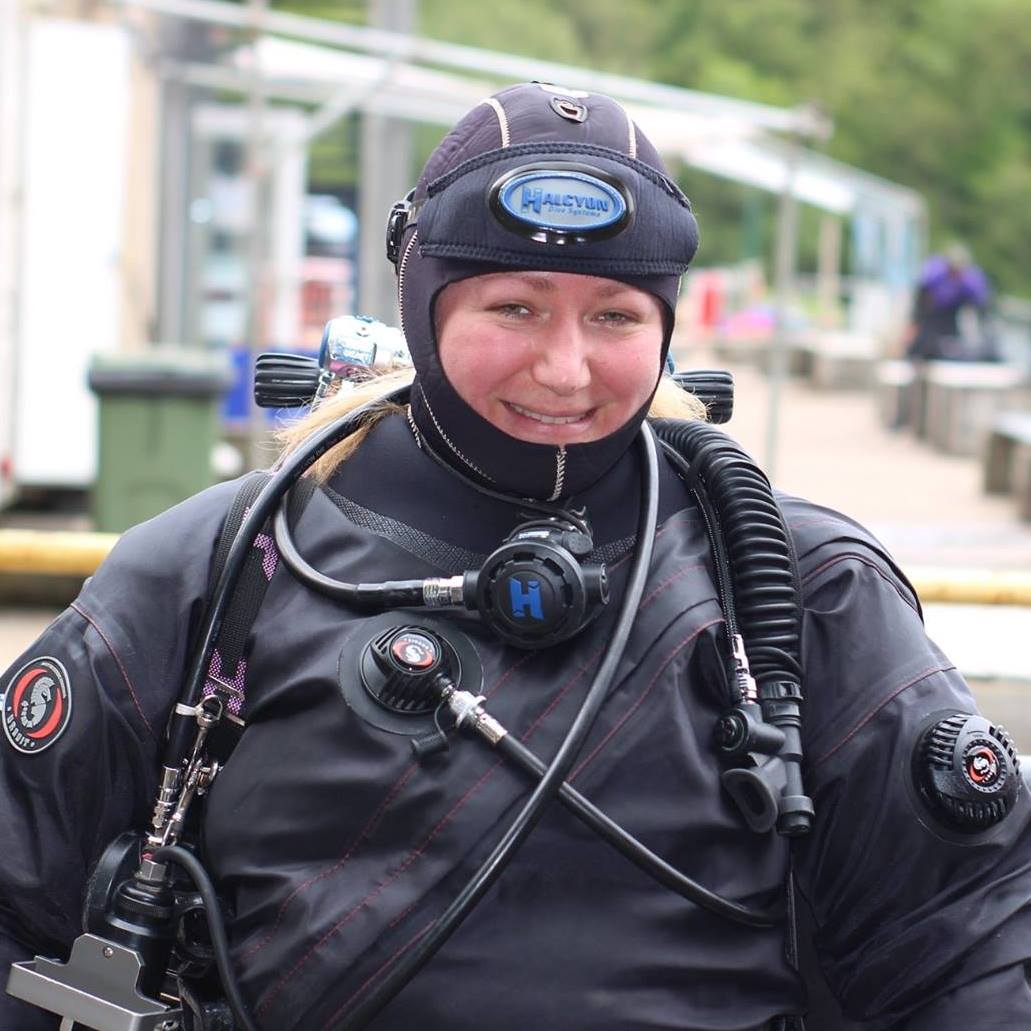
What would be your advice to the next generation who are looking to pursue a career in environmentalism or ocean protection?
Toughen up.
Honestly, I was truly shocked by how aggressive the conservation and environmental industry is. I think most people have lost sight of why they are doing it. This is why I put tens of hours a week in as a volunteer. I never lose sight of how I am spending my free time and I do it wisely, efficiently and effectively. The industry fights over funding and I would warn against collaborations unless you are known personally to whoever runs them. Getting in bed with the wrong organisation can wreak havoc for yours.
Don’t expect to earn any money from it and don’t get hung up in the washing machine cycle of all talk and no action. Be pushy, keep barging ahead for the results you want. Behave well and approach your mission intelligently. There is no point attacking an industry if you want that industry to do something for you.
When you attack something, it inevitably digs its heels in deeper and fights back harder. You will never win that sort of battle, so make friends with the problem you are trying to address. Reasonable people get far more success in the end.
Christine Grosart is a Paramedic, working offshore mainly on diving vessels. She started beach cleans around 2011 and has gone on to be a trustee, secretary, instructor and underwater photographer for the charity Ghost Fishing UK. She wrote the first training course for scuba divers to remove lost ghost nets, in the world. In 2020 she became a Fellow of the Royal Geographical Society for her work with Ghost Fishing UK as well as her cave diving exploration. In the same year she was included in the BBC Radio 4 Women’s Hour Power List.



